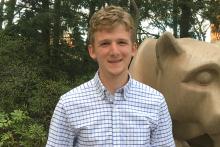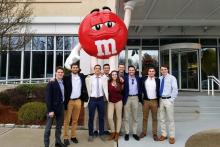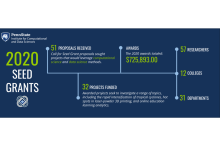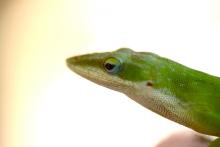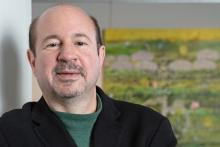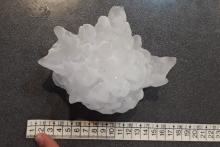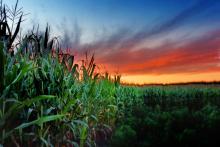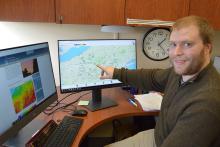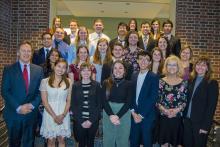Karl P. Schneider, a Schreyer Scholar, has been selected as the College of Earth and Mineral Sciences’ science honor marshal for Penn State's spring 2020 Commencement ceremony, which will be held virtually at 2 p.m. on May 9.
Penn State junior Andrew Mardirossian knows severe weather never stops, even during a pandemic. Mardirossian and his fellow members of the Weather Risk Management Club knew they couldn’t stop, either.
Understanding polarized political opinions, predicting Arctic Sea ice levels, and accelerating quantum computing with machine learning — these are just a few focuses of the dozens of new Penn State research projects that have been funded by Institute for Computational and Data Sciences seed grants, in conjunction with supplemental funding from the colleges of Arts and Architecture, Earth and Mineral Sciences; Information Sciences and Technology; Education; and Engineering.
A good grip can mean the difference between life and death for lizards in a hurricane, causing populations hit more frequently by hurricanes to have larger toepads, according to researchers from Washington University and Penn State.
The College of Earth and Mineral Sciences’ Graduate Fellows for Science Advocacy and Diversity (EMS-GFSAD) program is wrapping up its inaugural year and has already had an impact in promoting a diverse and inclusive scientific community.
Michael Mann, distinguished professor of atmospheric sciences and director of Penn State's Earth System Science Center at Penn State, has been elected to the National Academy of Sciences, recognizing distinguished and continuing achievements in original research.
A supercell thunderstorm pelted a city center in Argentina a few years ago with hailstones so large scientists suggested a new category to describe them — gargantuan hail.
If warming continues unabated in the Midwest, in 50 years we can expect the best conditions for corn and soybean production to have shifted from Iowa and Illinois to Minnesota and the Dakotas, according to Penn State researchers.
After tornadoes hit his southwestern Pennsylvania hometown in 1998, 9-year-old Kyle Imhoff learned a few things. Weather events could be very dangerous — but also fascinating.


